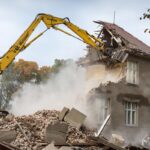Replacing drywall is a common home improvement project that can become necessary due to various reasons, including water damage, mold growth, or the desire to update and renovate a living space. The cost of replacing drywall can vary widely based on several factors including the size of the area to be repaired, the type of drywall used, labor costs, and whether the project involves simple repairs or complete replacement. Here’s an in-depth look at the factors affecting the cost and some general cost estimates.
Factors Influencing the Cost
Extent of Damage: Minor repairs such as patching holes or fixing small cracks will cost significantly less than replacing entire walls.
Type of Drywall: Standard drywall is the most affordable option. However, specialized drywall such as moisture-resistant or fire-resistant variants can cost more.
Labor Costs: Depending on the region, labor costs can vary. Professional drywall installation or repair services charge either by the square foot or by the hour.
Finishing Levels: Drywall finishing has different levels, from 0 to 5, with higher levels requiring more work and thus costing more. This includes taping, mudding, and sanding to prepare the wall for painting or wallpapering.
Removal and Disposal: The cost to remove and dispose of old drywall can add to the overall expense, especially if there’s a large amount to be handled.
Accessibility: Higher or hard-to-reach areas might require scaffolding or additional labor, increasing the cost.
Painting and Finishing Touches: After the drywall is installed and finished, painting or adding other finishing touches will add to the cost.
General Cost Estimates
Repair Costs: Minor repairs typically range from $50 to $200 for small patches. This can include materials and labor.
Replacement Costs: For larger projects, such as replacing entire walls, costs can range from $1.50 to $2.00 per square foot for materials and labor. This price can increase with higher-grade materials or complex installation requirements.
Overall Project Costs: A complete room drywall replacement can cost anywhere from $1,000 to $2,500 or more, depending on the room size and the factors mentioned above.
DIY vs. Professional Services
While some homeowners may opt to tackle drywall repair or replacement as a DIY project to save on labor costs, it’s important to consider the complexity of the project and the quality of the finish required. Professional services can ensure a seamless finish, especially for larger areas or higher levels of drywall finishing.
The cost to replace drywall varies widely based on the scope of the project, the materials selected, and labor costs. It’s advisable to get multiple quotes from contractors to find the best price and to ensure that the project meets your expectations in terms of quality and timeline. Planning ahead and budgeting for potential complexities can help manage the overall costs effectively.
Additional Considerations
When planning a drywall replacement project, there are additional considerations that can impact the overall cost and execution of the project:
Permits: In some cases, local building codes may require permits for drywall installation, especially if it involves structural changes or significant renovations. The cost of permits varies by location and project scope.
Insulation: If you’re replacing exterior wall drywall, it’s an opportune time to evaluate and possibly upgrade insulation. This can improve energy efficiency but will add to the project cost.
Electrical and Plumbing: Replacing drywall may expose or necessitate work on electrical wiring or plumbing. It’s important to factor in the cost of any necessary electrical or plumbing updates, which should be done by licensed professionals.
Soundproofing: For certain rooms or buildings, soundproofing can be a valuable addition. Special sound-dampening drywall or insulation can significantly reduce noise transfer but at a higher material and installation cost.
Mold Remediation: If drywall is being replaced due to water damage or mold, it’s crucial to address the root cause of the moisture issue. Mold remediation can be a significant part of the project budget but is essential for the health and safety of the home’s occupants.
Budgeting Tips
Get Multiple Quotes: To ensure you’re getting a fair price, obtain several quotes from different contractors. This will also give you a chance to assess each contractor’s experience and professionalism.
Consider Material Options: While special types of drywall offer benefits like moisture resistance or fire resistance, assess whether these features are necessary for your specific project to avoid unnecessary costs.
DIY Where Possible: For smaller repairs or if you’re skilled in home improvement, consider doing some of the work yourself to save on labor costs. However, be realistic about your skills and the time commitment required.
Plan for the Unexpected: Especially in older homes, be prepared for potential surprises like asbestos or outdated wiring that may need to be addressed, adding to the project cost.
The cost of replacing drywall is influenced by a wide range of factors from the size and scope of the project to the materials used and labor costs. Understanding these factors can help homeowners make informed decisions and budget appropriately for their project. While DIY can save money in some cases, professional installation ensures a quality finish and can prevent future issues, particularly for larger or more complex projects. Planning, researching, and consulting with professionals can lead to a successful drywall replacement project that enhances the comfort, appearance, and value of your home.






